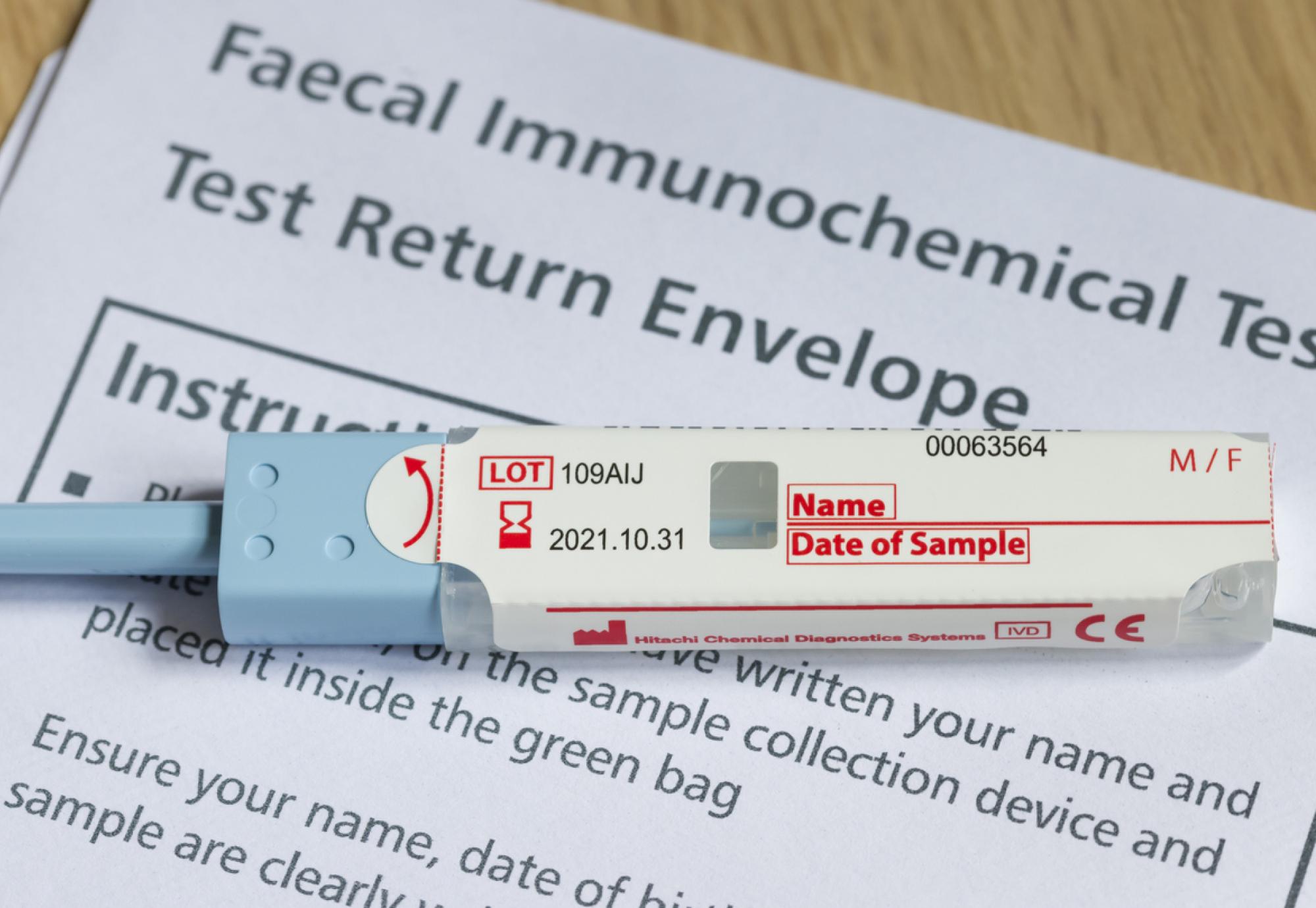Healthcare professionals should offer patients with symptoms of colorectal cancer a test they can complete at home to reduce waiting times and the number of unnecessary colonoscopies, according to new draft guidance from the National Institute for Health and Care Excellence (NICE).
Under the current guidance, some people presenting to primary care with signs of colorectal cancer are already offered faecal immunochemical tests (FIT), with others getting referred to a suspected cancer pathway straight away. This new NICE guidance would see everyone get a FIT.
As part of a FIT, patients send a sample of their faeces in the post to a lab where its blood quantities are analysed. If results show 10 or more micrograms of haemoglobin in a sample, a patient is referred for investigation.
NICE believes the expanded use of FIT could reduce the long waiting times sometimes experienced by patients as a result of the limited colonoscopy capacity.
GPs are being advised to use quantitative faecal immunochemical tests (FIT) for people with signs or symptoms of colorectal cancer.
— NICE (@NICEComms) July 5, 2023
The recommendation is likely to result in a reduction of the number of colonoscopies.
Learn more: https://t.co/7QF8mNlHqu #NICENews pic.twitter.com/EcsQOCxLfQ
With Cancer Research UK estimating there to be around 42,000 new cases of colorectal cancer every year, NICE’s committee agreed that it is important that GPs have the option to refer people for a colonoscopy without a positive FIT result if they deem it necessary.
NICE indicates its recommendation should reduce the number of unnecessary colonoscopies and alleviate capacity for non-urgent referrals. The organisation expects GPs in primary care to make around 50% fewer referrals for urgent colonoscopies each year.
NICE’s interim director of medical technology and digital evaluation, Mark Chapman, said: “Colorectal cancer is the fourth most common cancer in the UK and ensuring people receive a fast diagnosis must be a priority to allow treatment to get started as soon as possible.
“We know the demand for colonoscopies is high, so recommending the use of FIT in primary care could identify people who are most likely to have a condition that would be detected by colonoscopy.
“Introducing FIT to people as an initial test will also mean that those who are unlikely to have colorectal cancer may avoid having a colonoscopy, and those who are more likely to have it can be prioritised.”
Image credit: iStock



















